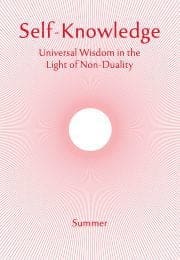St Augustine—The Early Struggles
In his youth Augustine had no clear sense of direction, but he knew that he wanted the best that life had to offer, and he grasped it with all the strength of his ardent personality. He sought admiration, worldly success, excitement, enjoyment, and he turned a deaf ear to his mother’s anxious advice about sexual morality. Yet in spite of indulging in all the pleasures he could find, he still had an uncomfortable feeling that something was missing, which was not to be found by trying to amass more and more material possessions. So he came to believe that the reason for his restlessness was that he had not yet fallen in love. What he did not realize was that his conception of love was immature; that the whole problem of life is to discover what love really means. What is it that we love when we love another human being? Is it the perishable body, or even the changing personality? If it is, then we are yet children in the art of love, and Love itself will inflict wounds on us in order to help us to grow. And so Augustine’s burning desire to love and have his love returned, found some measure of fulfilment. But he tells us the result in his own words: ‘I also fell in love, which was a snare of my own choosing. My God, my God of mercy, how good you were to me, for you mixed such bitterness in that cup of pleasure. My love was returned, and finally shackled me in the bonds of its consummation. In the midst of my joy I was caught up in the coils of trouble, for I was lashed with the cruel, fiery rods of jealousy and suspicion, fear, anger and quarrels.’
Later on, the same lesson was driven home again when a friend whom he loved dearly and who had been his inseparable companion, died, leaving him unconsolable. He tells us: ‘I lived in misery, like everyone whose soul is tethered by the love of things that cannot last, and then is agonized to lose them.’
But by this time, he was beginning to have a clearer sense of direction. Dimly, in the depths of our being, we all know we have a supreme goal, but we indulge in idle dreams and our memory has to be jolted, and when this happens our whole outlook is changed. In Augustine's case, what provided the stimulus was a book by Cicero entitled Hortensius, which exhorts the reader ‘to love wisdom, whatever it might be, and to search for it, pursue it, hold it and embrace it firmly’. These were the words, he tells us, ‘which excited me and set me burning with fire. ...All my empty dreams suddenly lost their charm, and my heart began to throb with a bewildering passion for the wisdom of the eternal truth.’
Subscribe or enrol for free guest access to read all of this article and Self-Knowledge online.
Already subscribed or enrolled? Log in:


